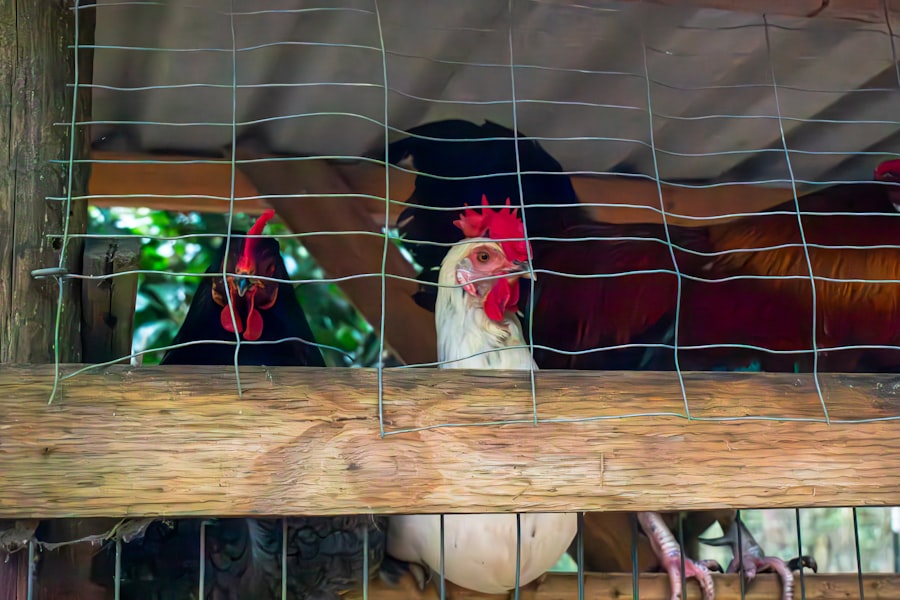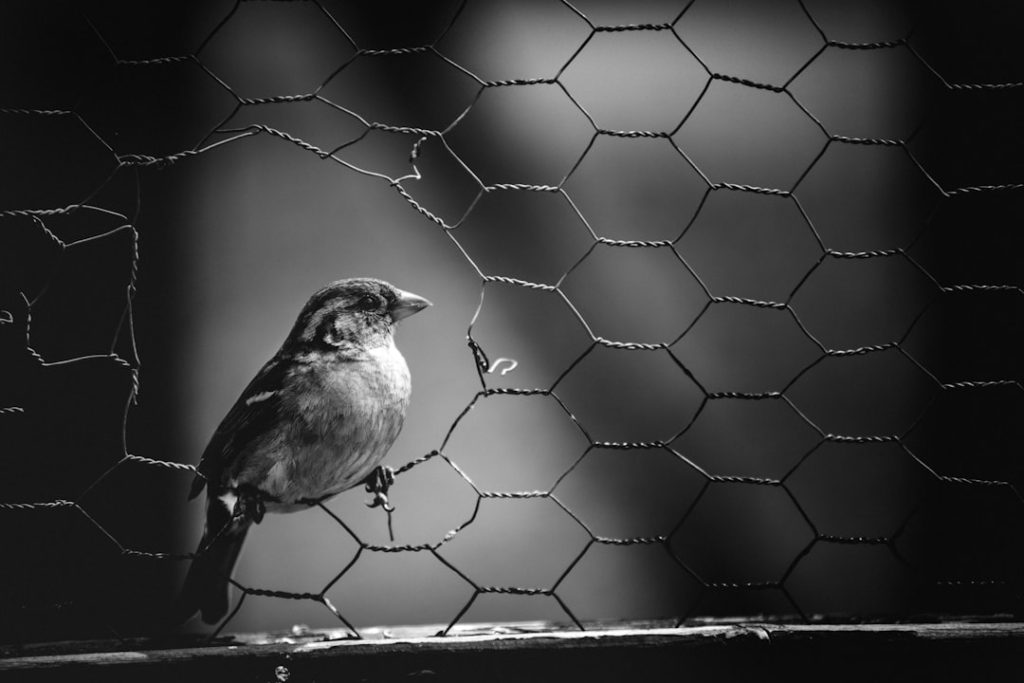Garden pest management is a common challenge for gardeners. Various animals and insects, including rabbits, deer, and numerous insect species, can cause significant damage to plants and flowers. This damage not only affects the garden’s aesthetic appeal but can also result in crop loss and wasted resources.
Gardeners often invest considerable time and effort in cultivating their plants, making pest-related setbacks particularly disheartening. Fortunately, numerous environmentally friendly and cost-effective methods exist to mitigate pest problems. These approaches include natural repellents, physical barriers, companion planting, and biological control methods.
By implementing a combination of these strategies, gardeners can effectively protect their plants while maintaining an ecological balance in their garden ecosystem.
Table of Contents
Key Takeaways
- Introduction to the Problem: Understanding the importance of natural deterrents and DIY solutions for keeping pests out of your garden.
- Natural Deterrents: Utilizing plants like marigolds, lavender, and mint to repel pests and protect your garden.
- DIY Fencing Solutions: Building simple fences using materials like chicken wire and bamboo to keep pests out of your garden.
- Repurposing Household Items: Using items like old CDs, aluminum foil, and coffee grounds to deter pests from entering your garden.
- Companion Planting: Pairing certain plants together to naturally repel pests and attract beneficial insects to your garden.
- Creating Distractions: Planting decoy crops and using scent deterrents to divert pests away from your main garden plants.
- Regular Maintenance and Monitoring: Consistently checking for signs of pests and taking proactive measures to keep them at bay.
Natural Deterrents
Plant-Based Deterrents
One effective way to keep pests out of your garden is by using natural deterrents. For example, planting certain types of flowers and herbs can help repel insects and other unwanted visitors. Marigolds, for instance, are known for their ability to repel nematodes, which can damage the roots of plants. Similarly, planting garlic and onions can help deter aphids and other insects.
Biological Control Methods
Using natural predators such as ladybugs and praying mantises can help keep insect populations in check. These natural deterrents not only help protect your garden, but they also contribute to a healthy and balanced ecosystem.
Scent-Based Deterrents
Another natural deterrent that can be effective in keeping pests at bay is the use of certain scents. For example, the strong scent of peppermint oil can help repel rodents such as mice and rats. Similarly, the scent of lavender can deter deer and rabbits from entering your garden. By strategically placing these scents around your garden, you can create a barrier that pests will be less likely to cross.
Overall, natural deterrents are a safe and environmentally friendly way to protect your garden from unwanted visitors.
DIY Fencing Solutions

Fencing is another effective way to keep pests out of your garden. While traditional fencing can be expensive and labor-intensive to install, there are several DIY solutions that can be just as effective. For example, using chicken wire or hardware cloth to create a barrier around your garden can help keep out rabbits and other small animals.
Additionally, using tall stakes and fishing line to create a barrier around your garden can deter deer from entering. These DIY fencing solutions are not only cost-effective but also customizable to fit the specific needs of your garden. Another DIY fencing solution is the use of raised beds.
By elevating your garden beds, you can make it more difficult for pests to access your plants. This is especially effective for deterring ground-dwelling pests such as slugs and snails. Additionally, raised beds can also help improve drainage and soil quality, leading to healthier plants overall.
Overall, DIY fencing solutions are a practical and effective way to protect your garden from unwanted pests.
Repurposing Household Items
Repurposing household items is another creative way to keep pests out of your garden. For example, using old CDs or aluminum foil to create reflective surfaces around your garden can help deter birds and other animals. The flashing light and movement created by these surfaces can startle pests and make them less likely to approach your garden.
Similarly, using old pantyhose or stockings to create barriers around plants can help protect them from insects and other pests. These repurposed household items not only serve as effective deterrents but also provide a sustainable and eco-friendly solution for pest control. Another household item that can be repurposed for pest control is eggshells.
Crushing up eggshells and scattering them around your garden can help deter slugs and snails, which are known for damaging plants by eating their leaves and stems. The sharp edges of the eggshells act as a physical barrier that pests are less likely to cross. Additionally, eggshells also provide essential nutrients such as calcium to the soil as they break down over time.
Overall, repurposing household items is a creative and sustainable way to protect your garden from unwanted pests.
Companion Planting
Companion planting is a gardening technique that involves planting different types of plants together to benefit each other in various ways. One of the benefits of companion planting is its ability to naturally deter pests. For example, planting strong-smelling herbs such as basil and mint alongside susceptible plants can help repel insects such as aphids and mosquitoes.
Similarly, planting marigolds alongside vegetables can help deter nematodes and other soil-borne pests. By strategically planning your garden layout and choosing companion plants wisely, you can create a natural barrier against pests while promoting a healthy and diverse ecosystem. Another benefit of companion planting is its ability to attract beneficial insects that can help control pest populations.
For example, planting flowers such as dill and fennel can attract predatory insects such as ladybugs and lacewings, which feed on aphids and other harmful pests. Additionally, planting flowering herbs such as lavender and thyme can attract pollinators such as bees and butterflies, which are essential for the reproduction of many plants. By incorporating companion planting into your garden design, you can create a balanced and harmonious environment that naturally deters pests while promoting the health and vitality of your plants.
Creating Distractions

Creating distractions is a clever way to keep pests out of your garden. By providing alternative food sources or attractions for pests, you can divert their attention away from your valuable plants.
Alternative Food Sources
For example, planting sacrificial crops such as sunflowers or corn at the edge of your garden can attract birds and other animals away from your main crops. Similarly, setting up bird feeders or baths in another area of your yard can help draw birds away from your garden.
Decoys and Scare Tactics
Another way to create distractions for pests is by using decoys or scare tactics. For example, setting up fake predators such as owls or snakes in your garden can help deter smaller animals such as rodents and rabbits.
Noise-Making Devices
Additionally, using noise-making devices such as wind chimes or motion-activated sprinklers can startle pests and make them less likely to approach your garden. By implementing these distraction techniques, you can effectively protect your garden from unwanted visitors while maintaining a peaceful and natural environment.
Regular Maintenance and Monitoring
Regular maintenance and monitoring are essential for keeping pests out of your garden. By staying vigilant and proactive, you can identify pest problems early on and take appropriate measures to address them. For example, regularly inspecting your plants for signs of pest damage such as chewed leaves or wilting can help you identify the presence of pests before they cause significant harm.
Additionally, maintaining good garden hygiene by removing weeds and debris can help eliminate hiding spots for pests and reduce the risk of infestations. Another important aspect of regular maintenance is proper watering and fertilization of your plants. Healthy plants are better equipped to withstand pest attacks, so it’s important to provide them with the nutrients and care they need to thrive.
Additionally, practicing crop rotation and diversifying your plantings can help prevent the buildup of pest populations in the soil. By implementing these maintenance practices, you can create a resilient and pest-resistant garden that thrives year after year. In conclusion, dealing with garden pests can be a challenging task, but there are several natural and DIY solutions that can help protect your garden from harm.
From using natural deterrents and DIY fencing solutions to repurposing household items and implementing companion planting, there are many creative ways to keep pests out of your garden. By creating distractions for pests and maintaining regular monitoring and maintenance practices, you can effectively protect your garden from unwanted visitors while promoting a healthy and balanced ecosystem. With these strategies in place, you can enjoy a thriving garden that is free from the frustrations of pest damage.
If you’re looking for cheap ways to keep your chickens out of your garden, you may also be interested in learning how many chickens you need for a family of 4. This article from Poultry Wizard provides valuable information on the ideal number of chickens to keep for a family of four, helping you make the most of your poultry while keeping them out of your garden. Check it out here.
FAQs
What are some cheap ways to keep chickens out of your garden?
Some cheap ways to keep chickens out of your garden include using chicken wire fencing, creating physical barriers with materials like PVC pipes and netting, and using natural deterrents like citrus peels or coffee grounds.
How effective are these cheap methods in keeping chickens out of the garden?
These cheap methods can be effective in keeping chickens out of the garden if implemented properly. However, it’s important to regularly inspect and maintain the barriers to ensure their effectiveness.
Are there any potential drawbacks to using these cheap methods?
Some potential drawbacks of using these cheap methods include the need for regular maintenance, the possibility of chickens finding ways to bypass the barriers, and the aesthetic impact of having fencing or barriers in the garden.
Are there any other alternatives to keeping chickens out of the garden?
In addition to the cheap methods mentioned, other alternatives to keeping chickens out of the garden include using motion-activated sprinklers, training the chickens to stay out of the garden, and providing alternative areas for the chickens to forage.

Meet Walter, the feathered-friend fanatic of Florida! Nestled in the sunshine state, Walter struts through life with his feathered companions, clucking his way to happiness. With a coop that’s fancier than a five-star hotel, he’s the Don Juan of the chicken world. When he’s not teaching his hens to do the cha-cha, you’ll find him in a heated debate with his prized rooster, Sir Clucks-a-Lot. Walter’s poultry passion is no yolk; he’s the sunny-side-up guy you never knew you needed in your flock of friends!
Meet Walter, the feathered-friend fanatic of Florida! Nestled in the sunshine state, Walter struts through life with his feathered companions, clucking his way to happiness. With a coop that’s fancier than a five-star hotel, he’s the Don Juan of the chicken world. When he’s not teaching his hens to do the cha-cha, you’ll find him in a heated debate with his prized rooster, Sir Clucks-a-Lot. Walter’s poultry passion is no yolk; he’s the sunny-side-up guy you never knew you needed in your flock of friends!







